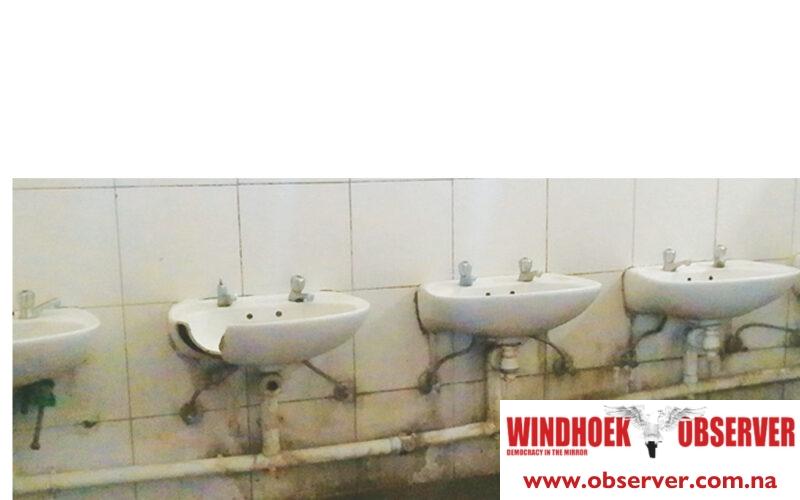Niël Terblanché
A recent fact-finding mission by the Parliamentary Standing Committee on Constitutional and Legal Affairs to Walvis Bay has shed light on the grim reality faced by trial awaiting prisoners in the Namibian Police holding cells.
The committee’s visit, aimed at assessing infrastructure and conditions within the justice system, has uncovered a situation that calls for urgent governmental intervention.
During their visit, the committee discovered that detainees, including mentally ill individuals and juveniles, are subjected to appalling conditions.
Overcrowding has become a significant issue, with some detainees forced to sleep on the floor without mattresses.
The revelation that juveniles are held alongside adults further exacerbates concerns over the welfare and safety of those in custody.
Magistrate John Sindano highlighted the shocking state of affairs, noting that detainees can be kept in these deplorable conditions for up to three years awaiting the finalization of their court cases.
The Walvis Bay Magistrates’ Court officials reported a dire need for a financial boost to address the lack of sufficient office and storage space.
Despite the anticipation of relief from the renovation of a building intended to alleviate these issues, delays have hindered progress.
According to some of the officials, a newly furnished building remains unoccupied due to the absence of telephone lines, although cable installation is underway.
Magistrate Sindano has called upon the visiting parliamentarians to take decisive action against the deplorable conditions in the police holding cells.
The added challenge of Walvis Bay becoming a haven for drug-related activities, leading to an increase in detainees with mental health issues, has compounded the urgency for solutions.
Reports from the previous year by police commanders confirm that families often refuse to care for mentally ill relatives, resulting in their detention in these inadequate facilities.
The Standing Committee on Constitutional and Legal Affairs has taken note of these serious concerns.
The deputy chairperson of the committee, Paula Kooper said the fact-finding mission not only aimed to observe the progress of capital projects under the Ministry of Justice and Office of the Judiciary but also attempted to bring to light the conditions endured by individuals in the legal system’s custody.
The findings from Walvis Bay serve as a stark reminder of the critical need for comprehensive reform within Namibia’s justice and penal systems.
The conditions described to the committee by court officials stress the urgency of addressing infrastructural deficiencies, improving the treatment of detainees, and ensuring that the justice system’s facilities meet basic human rights standards.
As the Parliamentary Standing Committee on Constitutional and Legal Affairs processes these findings, officials employed at the court expressed the hope that swift action will follow to rectify the inhumane conditions and infrastructure shortcomings.




